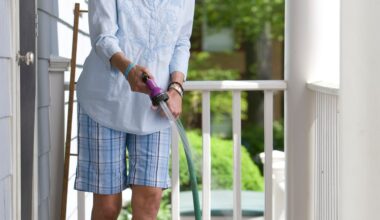You’ve found the perfect lakeside cabin and you want to make an offer before someone else buys it.
How hard is it to qualify for a new mortgage before your first mortgage is paid off?
Purchasing a second property before you’ve paid off your primary residence is common in the U.S., where over nine million Americans own a second home. However, your financing options for the second home are quite different from when you financed your first home.
This article will explore the different financing options available for second home purchases. Read on to see how you can buy that cabin and spend your summers kayaking with your family along the shores of a gorgeous lake.
What Is the Purpose of the New Property?
Before you can approach the bank for a loan, you’ll need to define the primary purpose of the second home. Will it be a vacation home for your family, or will it be an investment property?
The bank’s criteria for these two types of properties are specific, and misrepresenting the purpose of your property is fraud. So choose carefully beforehand what your property will be used for because you can’t decide later to convert a vacation home loan into an investment property loan.
According to Fannie Mae guidelines, a vacation home:
- Must be a single-family residence
- Must be occupied by the family for part of the year
- Must not be managed by a property manager
- Must be suitable for year-round living
- The borrower must be in control of the property.
Additionally, some banks require the second home to be a minimum distance from the borrower’s primary residence, often more than 50 miles.
An investment property, on the other hand, is not occupied by the owner.
Pro-tip: It’s possible to rent out a vacation home if you follow specific IRS rules — you must live in the vacation home for more than 14 days or “10% of the total days you rent to others at a fair rental price”.
How to Get a Mortgage Loan for a Second Property
Once you’ve decided on the purpose of your second property, you’ll pull together your financial information to apply for the loan. Since you’ve already purchased a primary residence, you’re familiar with the documents that you’ll need. However, the terms of the mortgage and the credit and financial requirements are more stringent for this second loan.
Bank Requirements for a Vacation Home
For your first mortgage, you may have put down as little as 3%, but for a second property, you’ll need to put down at least 10%. You’ll also need:
- Minimum 720 credit score
- Maximum 90% loan-to-value (LTV) ratio
- Maximum 45% debt-to-income (DTI) ratio
- Two months of cash reserve
Bank Requirements for an Investment Property
Investment properties are considered riskier than vacation properties, so in addition to calculating the potential rental income, the bank will require:
- 15% down payment
- Minimum 700 credit score
- Maximum 85% LTV ratio
- Maximum 45% DTI ratio
- Six months of cash reserve
These numbers can vary from bank to bank, so you should definitely shop around for your second loan.
What Is a Second Mortgage?
Just a word of warning. The phrase “second mortgage” sounds exactly like what you’re looking for if you want to buy a second property with a home loan. However, a second mortgage is a specific financial product that homeowners use when they borrow the equity from their primary residence using their home as collateral. Taking out a second mortgage adds an additional mortgage to your current home loan. If you’re purchasing a second property, you’ll want a second-home mortgage.
What Other Financing Options Do You Have?
Besides taking out a second conventional mortgage, there are some other financing options you can tap into. Since these financial products rely on using your primary residence as collateral, you should carefully evaluate if you can handle the cost of two properties since defaulting on your second home may jeopardize your primary residence.
Home Equity Line of Credit (HELOC)- A HELOC can help you access the money available in your primary residence. It usually has a variable interest rate and a fixed time to borrow the money, but it can be paid back over a long period of time. This HELOC calculator can help you see if borrowing from your home’s equity is even possible.
Cash-Out Refinance- This type of refinancing rewrites the terms of your original mortgage, even allowing you to borrow more than the original amount. It can be a good idea especially if interest rates are low. Check out this refinance calculator from Discover for a better idea of how much you could refinance for.
Home Equity Loan- This is similar to a HELOC because you’re borrowing the equity out of your primary residence, but the money is taken out in a lump sum and the interest rate is fixed.
The Bottom Line
Purchasing a second home before your first home is paid off happens so often that there are a variety of financial products available to make your dream a reality. Whether you choose to take out a second conventional loan or borrow from your primary residence’s equity, there are many options available to you to purchase that dream cabin by the lake.










